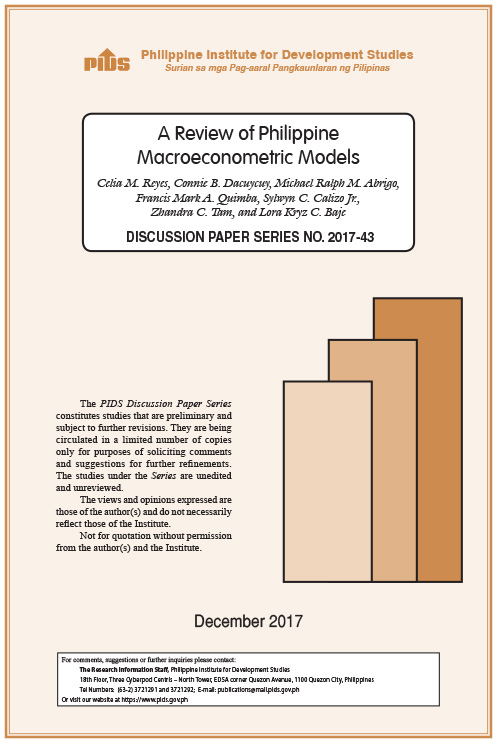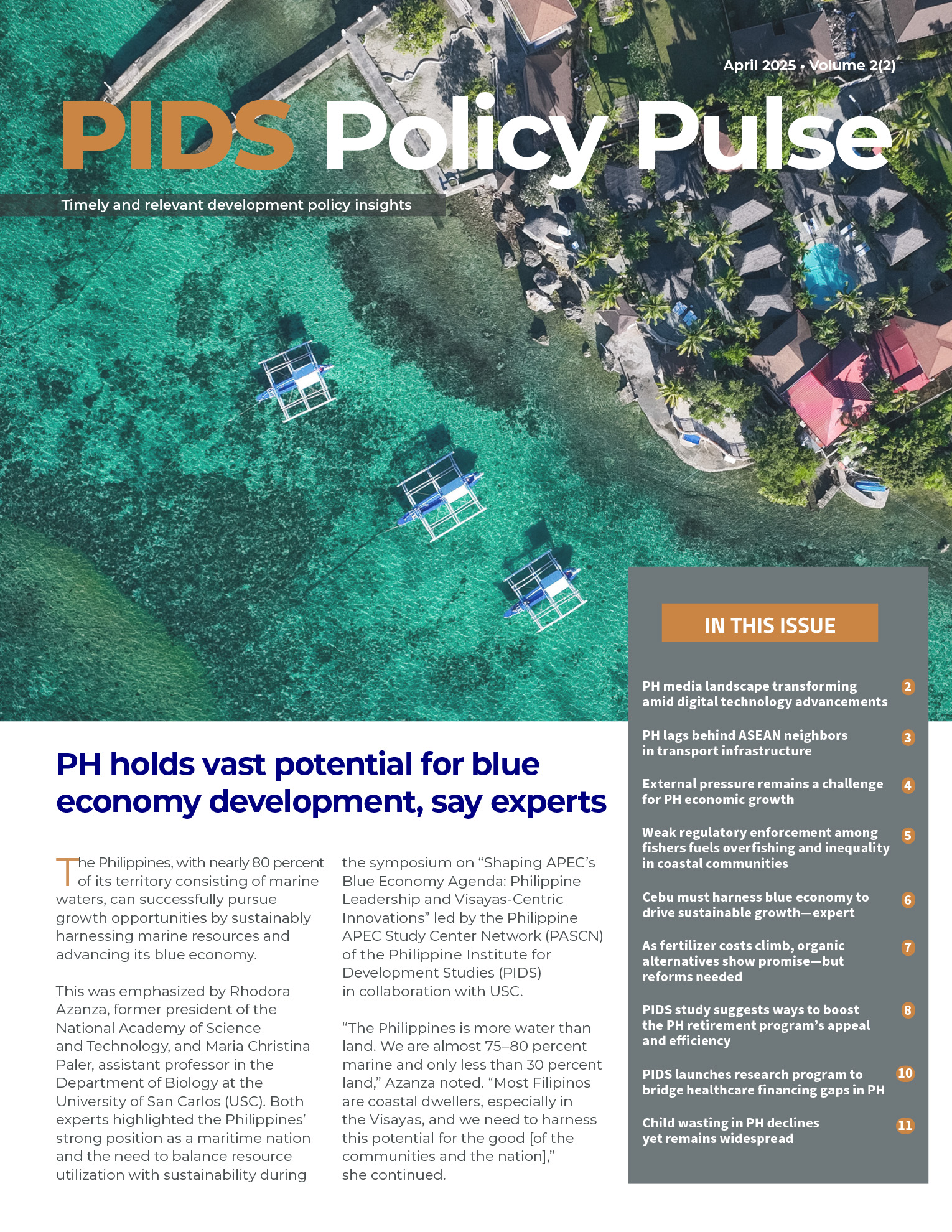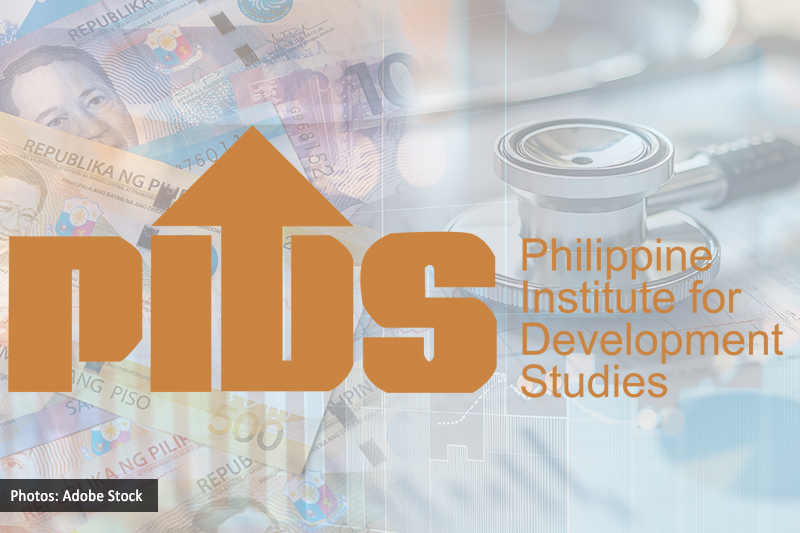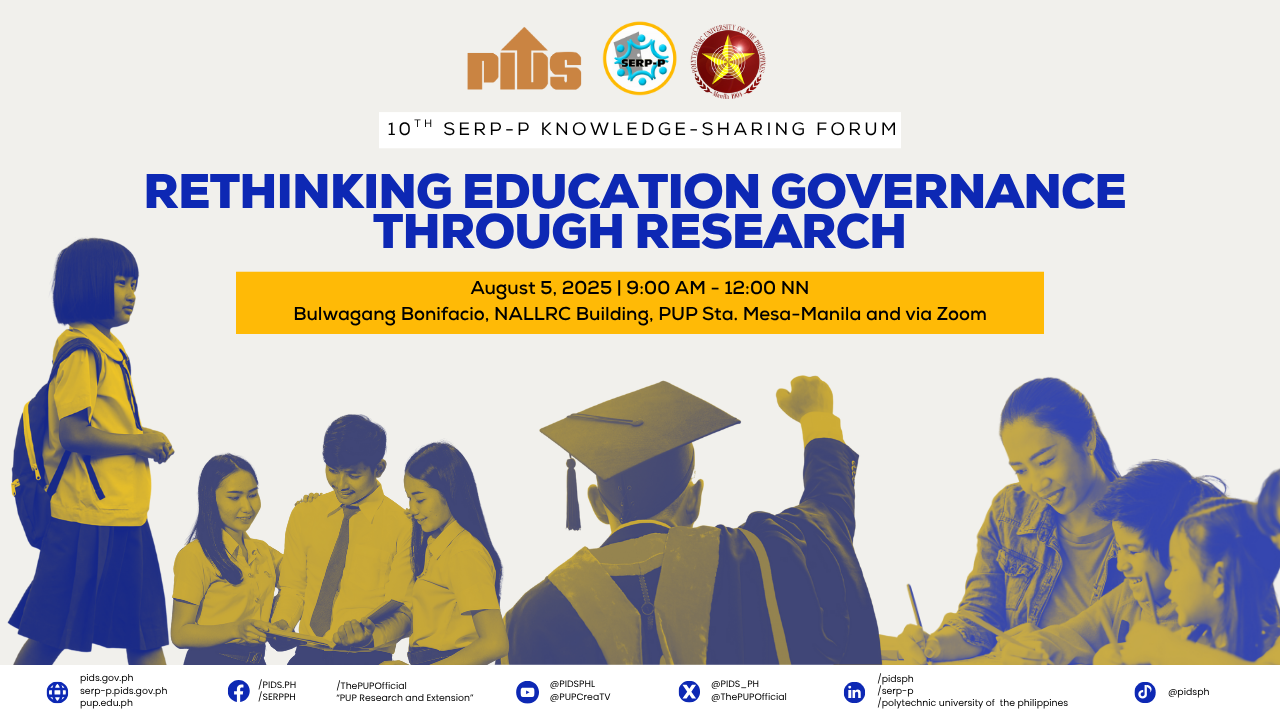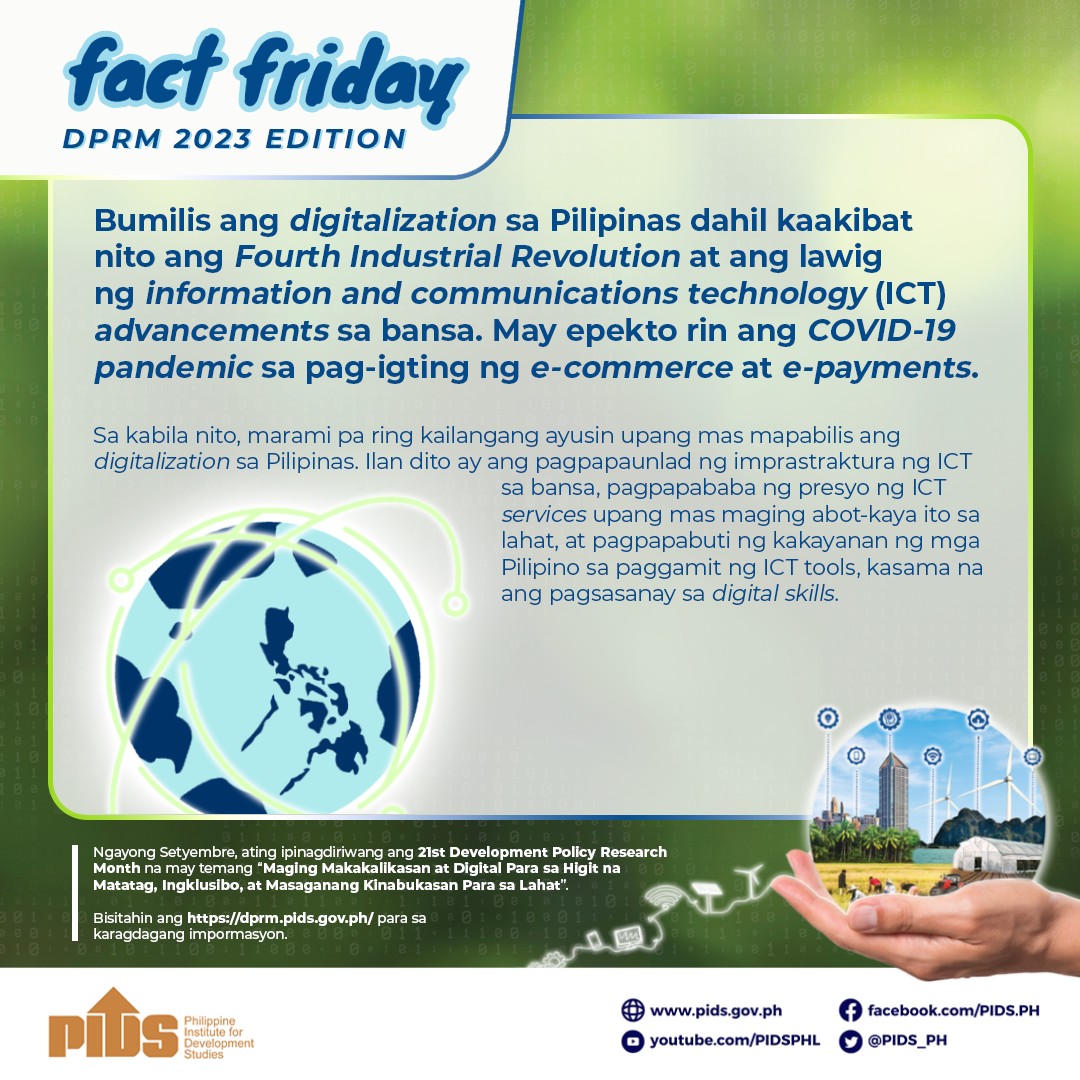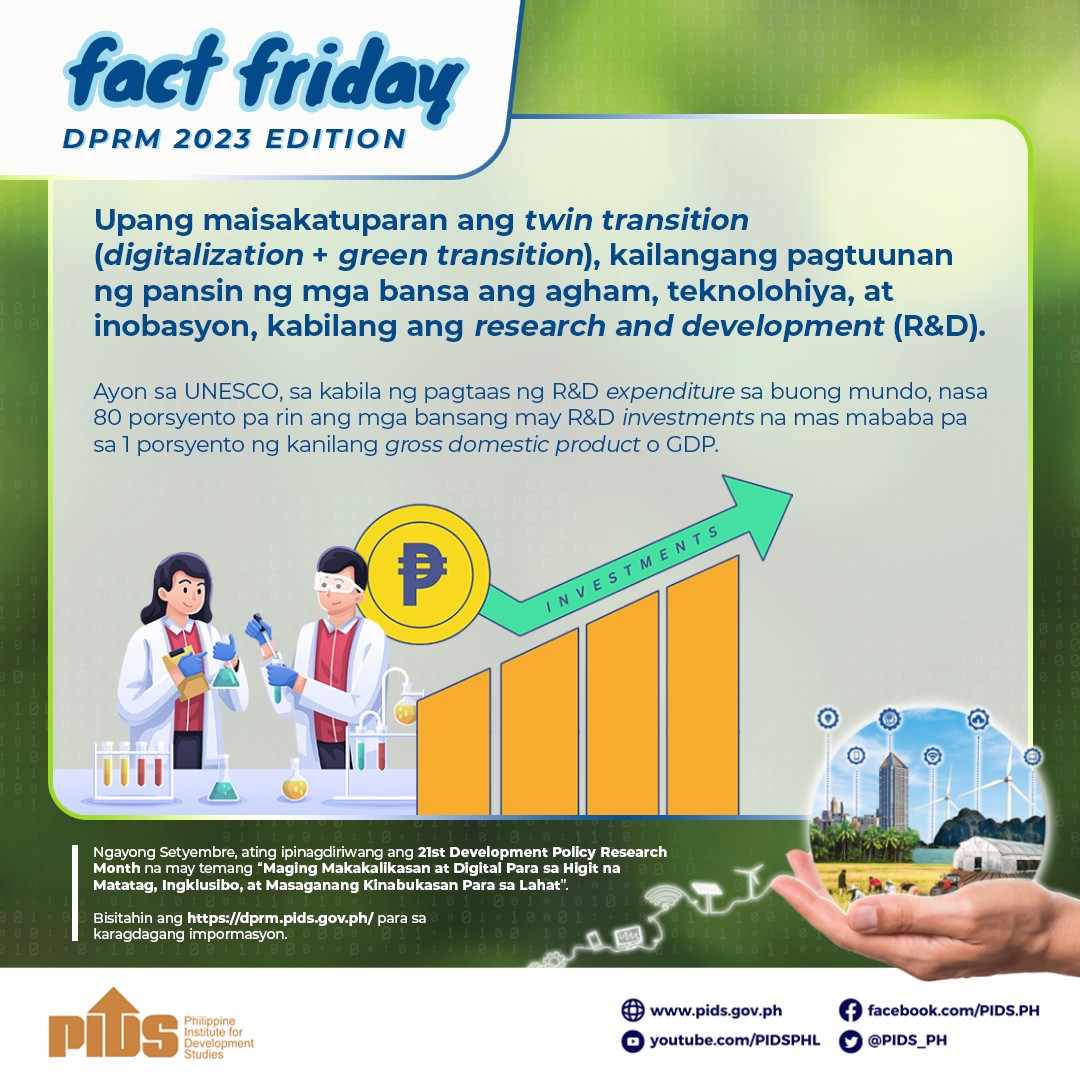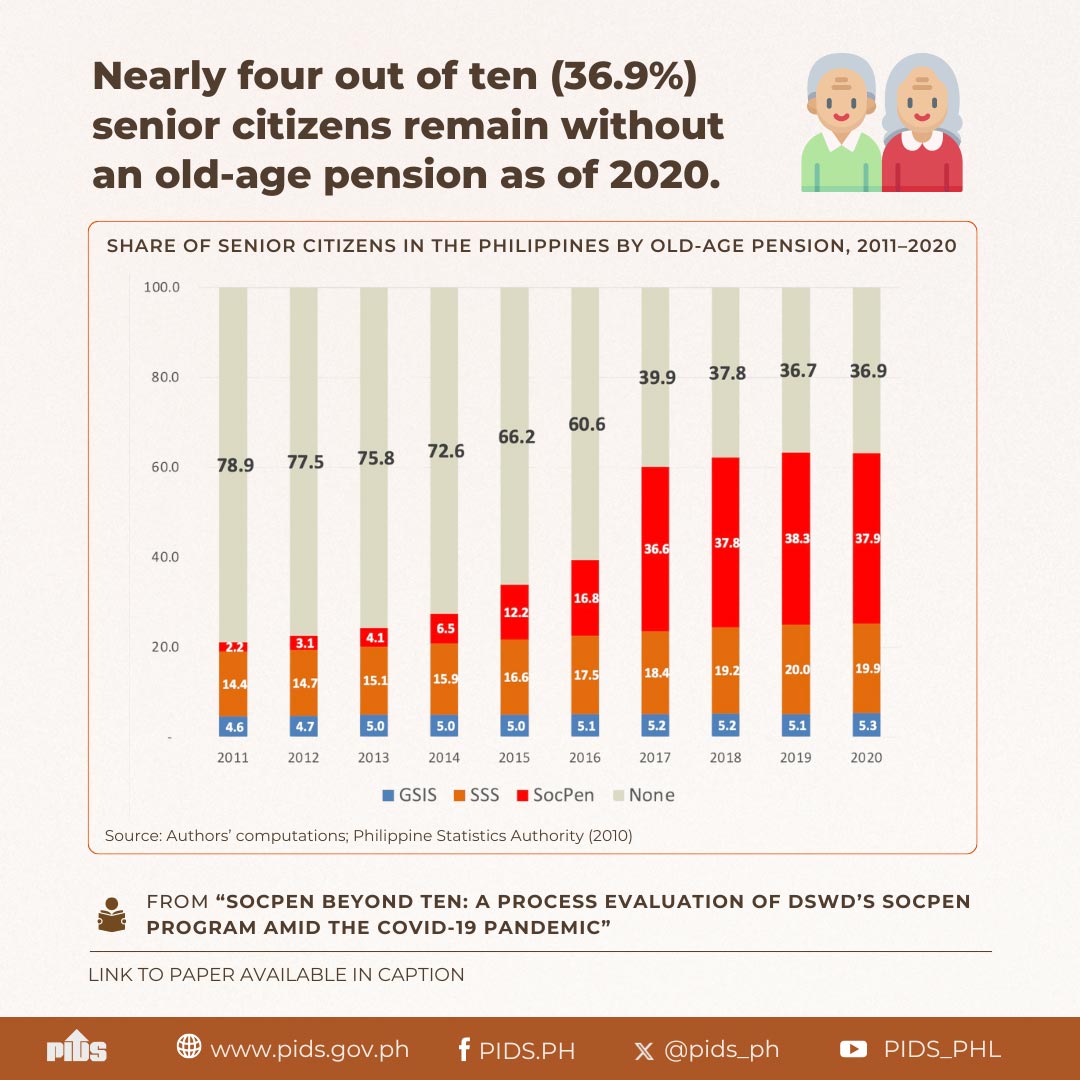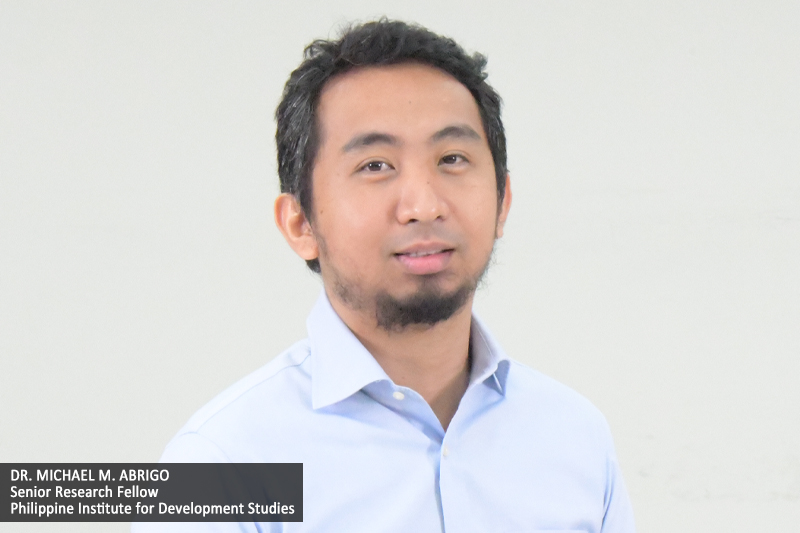
Michael Ralph Abrigo, a senior research fellow at the Philippine Institute for Development Studies (PIDS), was recently recognized by the National Academy of Science and Technology (NAST) as the 2022 Outstanding Young Scientist in Economics.
At 35, Abrigo is a highly ranked economist. He has consistently been among the top ten percentile of economists worldwide and among the top ten economists in the Philippines based on IDEAS/RePEc, the largest global bibliographic database dedicated to Economics.
Among his most cited works is a suite of statistical programs he developed with Inessa Love that implements model selection, estimation, and inference of homogeneous panel vector autoregressive (pVAR) models. Since its publication, their paper detailing the pVAR suite of commands has been cited more than 900 times with applications in diverse fields, including in economics, environmental science, political science, and psychology.
Currently, he leads the Philippine research team in the National Transfer Accounts (NTA) Project, a global network of researchers, academics, and national statisticians that estimates and studies the intergenerational flow of economic resources.
In 2017, together with coauthors Andrew Mason, Ronald Lee, and Sang-Hyop Lee, Abrigo published a United Nations technical report projecting the potential contributions of global demographic change to the world economy. In a series of papers, he showed how the Philippine demographic transition has contributed to economic growth and how it may have significant implications on future household consumption, government finance, and energy demand.
Abrigo has used quasi-experimental techniques to shed light on the intended and unintended consequences of government programs in the Philippines. He has also used natural experiments to study the impact of HIV/AIDS knowledge on sexual behavior, of commodity prices on breastfeeding, and of social health insurance on health-seeking behavior.
He started as a research analyst at PIDS in 2008 and rose through the ranks, eventually becoming a research fellow in 2017. His research focused primarily on the welfare implications of demographic change and human resource policies, although he has conducted studies on other topics such as public finance, climate change, and resource economics.
Abrigo obtained his Bachelor of Arts (Development Studies, magna cum laude) and Master of Statistics degrees from the University of the Philippines and his Master of Arts and Doctor of Philosophy (Economics) degrees from the University of Hawai`i. He received the 2016 Burnham O. Campbell Award for his doctoral dissertation on health over the lifecycle. ###

